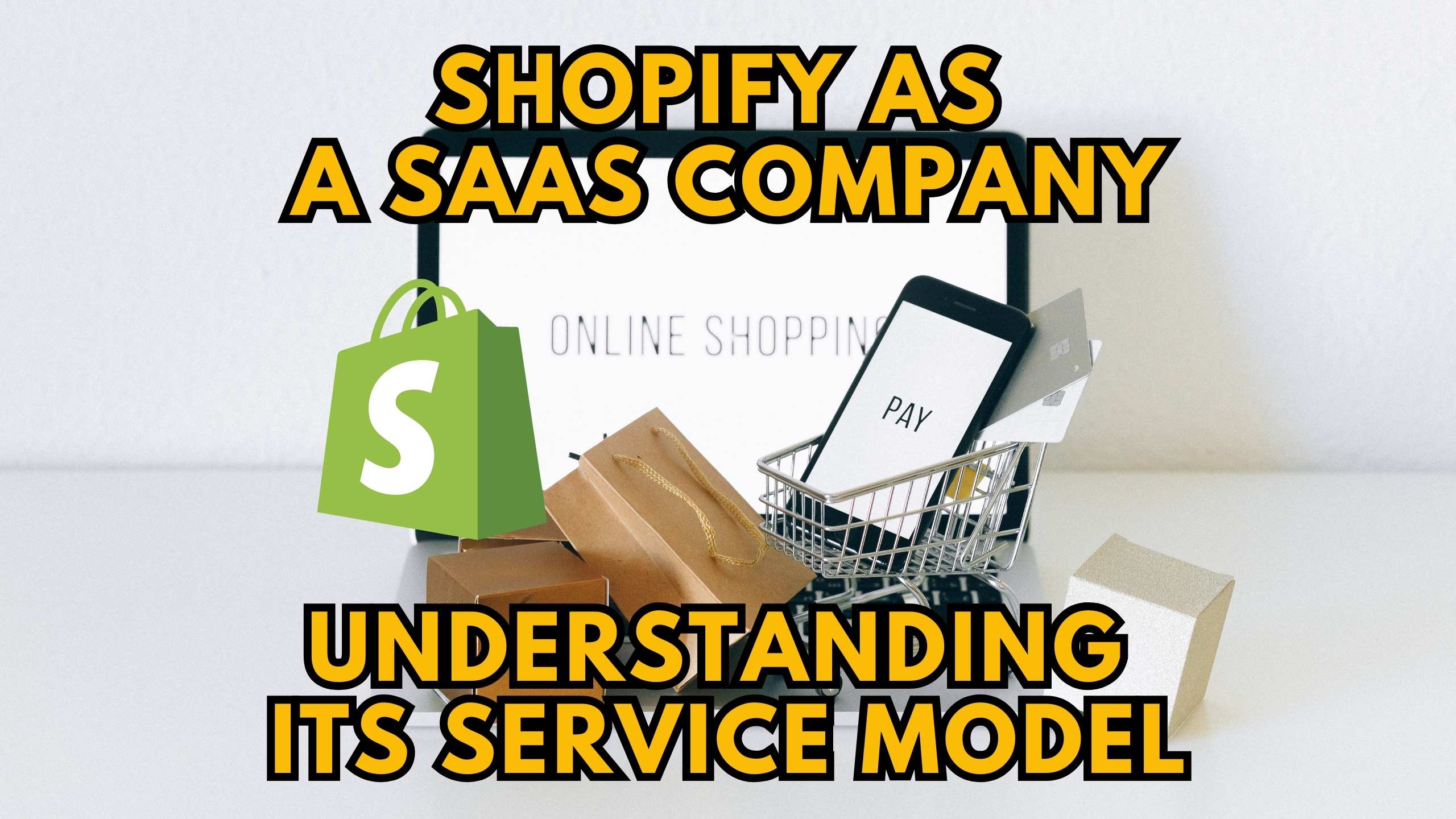Shopify as a SaaS Company: Understanding its Service Model


Shopify as a SaaS Company: Understanding its Service Model
Shopify, a renowned e-commerce platform, operates on the Software as a Service (SaaS) model, providing a comprehensive solution for businesses to build, manage, and scale their online stores. In this in-depth exploration, we delve into the intricacies of Shopify’s SaaS service model, shedding light on its features, benefits, and relevance in the digital commerce landscape.
Unveiling Shopify’s SaaS Framework
Shopify operates as a SaaS company, offering a cloud-based platform that eliminates the complexities of traditional e-commerce development. Merchants subscribe to Shopify’s services, gaining access to a fully hosted solution that includes website building tools, secure payment gateways, and a plethora of customizable themes and plugins. This subscription-based model allows businesses to focus on their products and customers without the burden of managing server infrastructure.
The Power of Shopify’s Ecosystem
Shopify’s SaaS ecosystem extends beyond basic e-commerce functionalities. It provides a seamless experience for inventory management, order fulfillment, and marketing. With a user-friendly interface and a variety of integrated applications, Shopify empowers merchants to optimize their operations efficiently.
Shopify Plus: Scaling for Enterprise
For larger enterprises with advanced needs, Shopify offers Shopify Plus, an enterprise-level solution within the same SaaS framework. Shopify Plus provides additional features like automation, scalability, and dedicated support, catering to high-volume businesses. It exemplifies how Shopify adapts its SaaS model to meet the diverse requirements of businesses across different scales.
Relevant SaaS Products for E-Commerce Excellence
- BigCommerce: BigCommerce is a SaaS e-commerce platform known for its robust features, scalability, and flexibility. It suits businesses of all sizes, offering advanced customization options and seamless integrations with various third-party applications.
- WooCommerce: Although built on WordPress, WooCommerce operates as a SaaS solution for online stores. It combines the power of WordPress with e-commerce functionalities, providing a customizable and scalable platform.
- Magento: Magento, an Adobe company, offers a cloud-based e-commerce solution that caters to businesses of all sizes. Known for its flexibility and extensive feature set, Magento is a powerful SaaS platform for creating unique online shopping experiences.
- Wix eCommerce: Wix is a website builder that includes robust e-commerce features. Its SaaS model simplifies the process of creating and managing an online store, making it accessible for businesses and entrepreneurs.
- Squarespace: Squarespace, primarily a website builder, includes integrated e-commerce functionality. It operates on a SaaS model, providing an all-in-one solution for businesses looking to establish their online presence.
Conclusion
Understanding Shopify as a SaaS company unveils the transformative power it brings to the e-commerce landscape. Its subscription-based model, coupled with a user-friendly interface and a rich ecosystem, empowers businesses to thrive in the digital marketplace. Whether you are a small business owner or an enterprise-level corporation, Shopify’s SaaS framework adapts to your needs, providing a scalable and efficient solution for online success.
Elevate Your E-Commerce Experience with Subscribed.fyi!
Ready to optimize your e-commerce journey? Sign up for Subscribed.fyi to unlock exclusive deals on SaaS tools, including those tailored for e-commerce excellence. Make informed decisions and save big on essential tools for managing your online store. Unlock Exclusive Deals Now!
Relevant Links:








